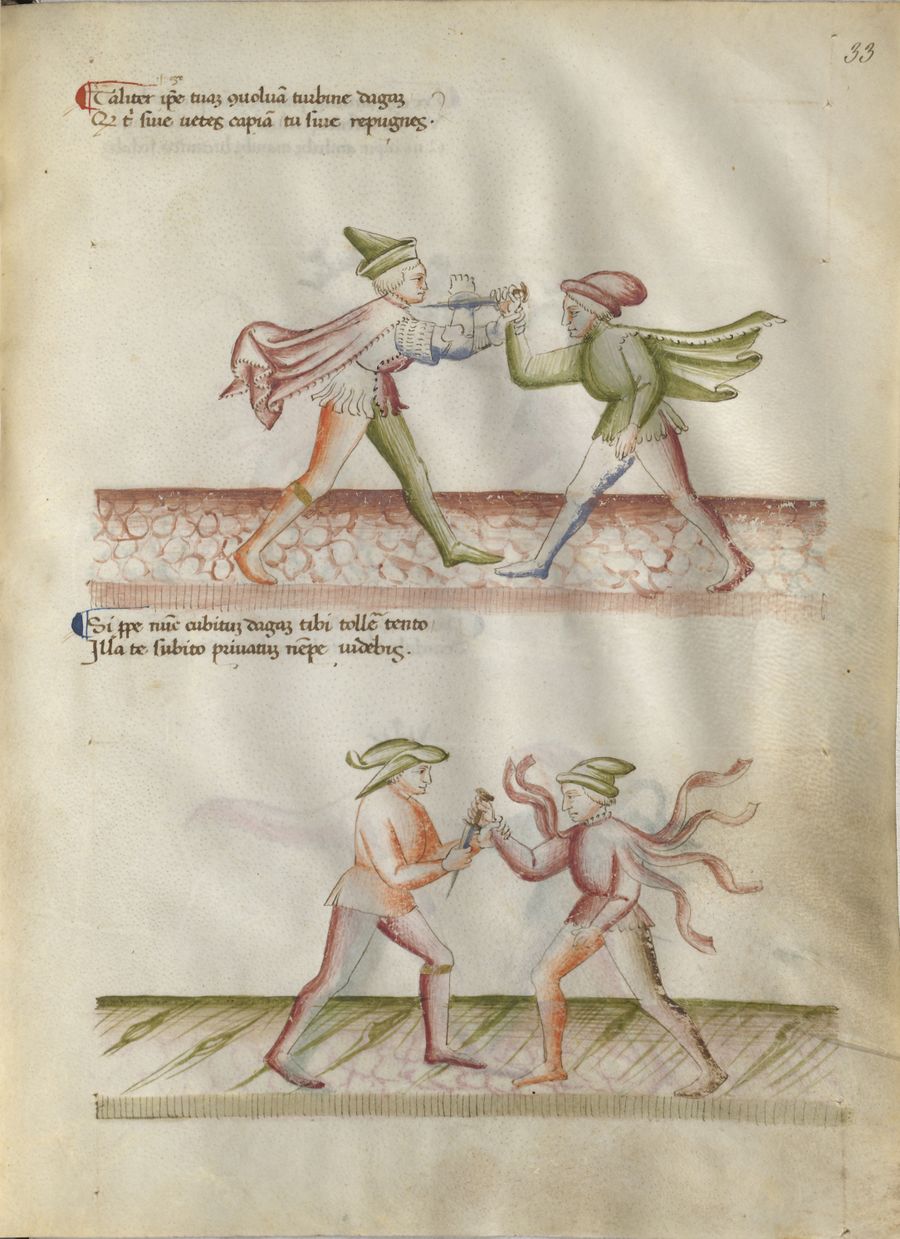|
|
You are not currently logged in. Are you accessing the unsecure (http) portal? Click here to switch to the secure portal. |
Difference between revisions of "User:Kendra Brown/Florius/English MS Latin 11269 33r"
Kendra Brown (talk | contribs) |
|||
| (10 intermediate revisions by 2 users not shown) | |||
| Line 22: | Line 22: | ||
</noinclude> | </noinclude> | ||
<poem> | <poem> | ||
| − | {{par|b}} In this way, I myself will | + | ✅{{par|b}} In this way, I myself will twist your dagger away with a whirling motion, |
| − | + | I will seize what belongs to you, whether you prohibit it or YOU fight back | |
| − | {{par|r}} | + | ✅{{par|r}} If I now attempt to lift the dagger near your elbow, |
| + | You will truly see that you suddenly have been deprived of that [dagger]. | ||
</poem> | </poem> | ||
<noinclude>{{reflist}} | <noinclude>{{reflist}} | ||
[[file:MS Latin 11269 33r.jpg|900px]]</noinclude> | [[file:MS Latin 11269 33r.jpg|900px]]</noinclude> | ||
Latest revision as of 20:22, 8 July 2025
Latin 33r
¶ Taliter ipse[1] tuam convolvam turbine dagam /
Quod tibi sive vetes[2] capiam / tu sive repugnes.
¶ Si prope[3] nunc cubitum dagam tibi tollere tento,
Illa te subito privatum nempe videbis.
Italian
|
I will make your dagger do a turn, |
[10a-a] A la tua daga faro far una volta, |
|
If I lift your dagger behind your elbow, |
[10a-b] Si io levo la tua daga per apresso tuo cubito |
English 33r
✅¶ In this way, I myself will twist your dagger away with a whirling motion,
I will seize what belongs to you, whether you prohibit it or YOU fight back
✅¶ If I now attempt to lift the dagger near your elbow,
You will truly see that you suddenly have been deprived of that [dagger].

